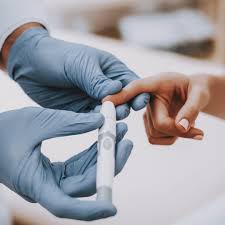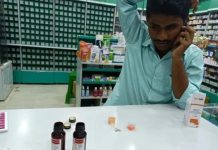By Nelson Manneh
As The Gambia continues to strengthen its public health system, diabetes is emerging as a growing concern for healthcare providers and families alike. The disease, once less prominent in national discussions, is now claiming more attention due to its steady rise across both urban and rural communities.
“Diabetes is a group of metabolic disorder that is characterized by high blood sugar,” explained Sainabou Barra Cham, Program Officer at the Non-Communicable Diseases Control Unit under the Ministry of Health. “What happened is that there is an organ in the body called the pancreas, this pancreas produces a hormone called the insulin and when the pancreas is not producing enough of insulin or is not producing insulin at all.”
She said testing for diabetes is a simple process. “To test diabetes is very simple as it is done by extracting blood and testing it to know whether someone has diabetes,” she said, adding that there are three main types: type 1, type 2, and gestational diabetes.
“Type one diabetes is mostly seen in young people and in this case the affected individual’s pancreas does not produce insulin at all. The type two diabetes mostly affects adults and in this case the pancreas produce insulin but very minimal. There is also what we called gestational diabetes, this type of diabetes mostly affects women during pregnancy but ones they delivered it disappeared,” she explained.
In recent years, diabetes has become more visible in the country’s public health landscape. According to the International Diabetes Federation, an estimated 5.5 percent of adults in The Gambia were living with diabetes in 2024—approximately 54,000 people. The World Bank puts the figure at 1.9 percent among adults aged 20 to 79. Experts link the increase to a variety of factors, including aging, obesity—especially among women—and changes in lifestyle.
“Diabetes is primarily caused by the body’s inability to produce enough insulin or effectively use the insulin it produces,” Cham said. “This results in high blood sugar levels. Type 1 diabetes is an autoimmune condition where the body attacks its insulin-producing cells. Type 2 diabetes, the most common form, is often linked to lifestyle factors like obesity, physical inactivity, and genetics.”
Cham addressed some common misconceptions. “While it’s a common misconception, eating too much refined sugar doesn’t directly cause diabetes, though it can contribute to weight gain, a major risk factor for type 2 diabetes. Type 1 diabetes is an autoimmune condition unrelated to diet, while type 2 diabetes develops due to a combination of genetic and lifestyle factors, including weight and diet,” she said.
She encouraged simple, consistent lifestyle changes to reduce risk. “Excess weight, especially around the waist, can increase insulin resistance, a key factor in type 2 diabetes. Losing even a small amount of weight (e.g., 5-7%) can significantly improve your body’s ability to regulate blood sugar. Aim for at least 150 minutes of moderate-intensity exercise per week. This could include brisk walking, cycling, swimming, or other activities you enjoy. Exercise helps your body use insulin more effectively and can help with weight management. Smoking increases the risk of type 2 diabetes and other health problems. Quitting smoking is crucial for overall health and can improve your body’s ability to manage blood sugar,” she said.
Alongside conventional health advice, some Gambians continue to seek out traditional methods of treatment. Omar Sambou, a herbalist based in Serrekunda Market, shared his own experiences.
“I have attended to many people and they told me that they were diabetic but after taking my herbs they were cured. It may not be in all cases but in many cases the individuals get cured,” he said.
He believes in the power of traditional remedies. “Conventional medicines are from herbs so it is very rhetorical for someone to say herbs don’t cure diabetes,” Sambou said. “Diabetes is curable.”
Others, like Sally Hydara, a 70-year-old woman from Manjai Kunda, hold a different view. She believes age plays a significant role in the development of the condition.
“When I was young I was told that diabetes is caused by consuming too much sugar. I know people who consumed a lot of sugar but they are still ok but here I am diabetic,” she said.
Despite her interest in herbal medicine, she takes a more measured approach. “I drink both herbs and convention medicines, I am a leaving witness. I can confirmed to you that diabetes is manageable is not an instant killer diseases but is incurable,” she said. “Diabetes is incurable instead it can be managed or controlled if you continue to take your medication as prescribed.”
Medical studies support the importance of early management. Research shows that those diagnosed with type 2 diabetes at a younger age are more likely to experience complications later in life, though with proper care, many can live full and healthy lives.
The consequences of unmanaged diabetes can be serious. In some cases, it can lead to nerve and blood vessel damage, particularly in the feet and legs, which increases the risk of slow-healing wounds and infections. If complications progress, amputation may become necessary to protect the patient’s overall health.
A study conducted in 2022 revealed that many Gambians have limited knowledge about diabetes and its symptoms. This has prompted health experts to call for more community education and outreach. On World Diabetes Day, local campaigns emphasized the importance of healthy eating, exercise, and the use of local foods to manage and prevent the disease.
Simple changes such as eating smaller portions, choosing foods with less fat, drinking water instead of sweetened beverages, and avoiding shopping for food while hungry can all contribute to better health outcomes.



















